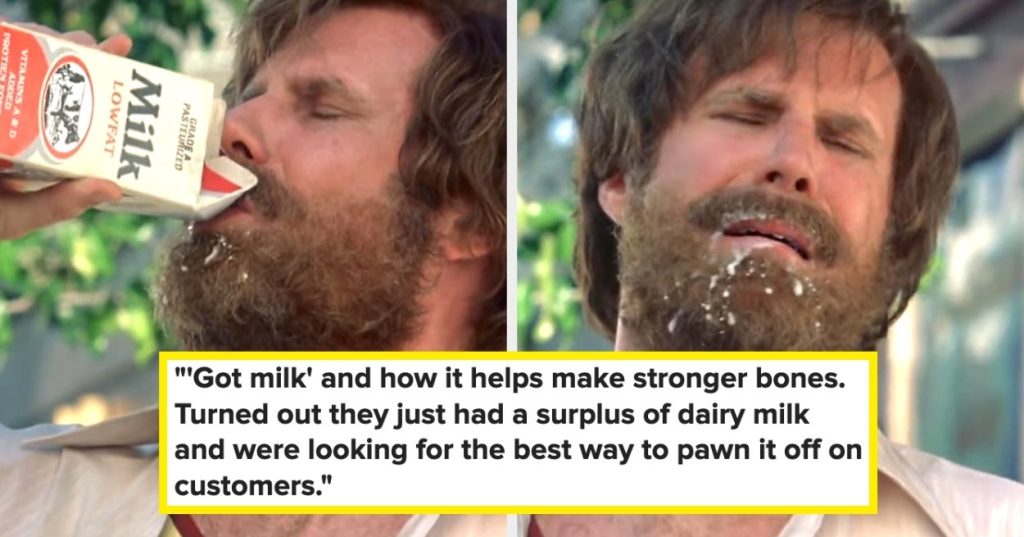Listen to the article
Common “Facts” That Are Actually Corporate Propaganda
Many widely accepted “facts” that shape our daily habits and beliefs are actually the result of carefully orchestrated propaganda campaigns by industries protecting their profits. A recent online discussion revealed numerous examples that have become so embedded in our culture that many people accept them without question.
Take diamond engagement rings, for instance. The tradition wasn’t widespread a century ago until De Beers orchestrated one of the most successful marketing campaigns in history. After discovering massive diamond mines in South Africa, they controlled supply while artificially creating demand through a coordinated effort involving movie stars, fashion designers, high school lectures, and their famous slogan: “A diamond is forever.” Today, most people still consider a diamond essential for proposals, believing these gems are rare and indestructible—myths that continue to benefit the diamond industry.
Another case of corporate propaganda distorting public perception involves the infamous McDonald’s coffee lawsuit. Many remember it as a frivolous case where a woman sued after spilling coffee on herself. The reality was far different: 79-year-old Stella Liebeck suffered third-degree burns covering 16% of her body when coffee served at 180-190°F spilled on her lap while she was a passenger in a parked car. The burns were so severe she needed skin grafts and spent eight days in the hospital.
Liebeck initially only asked for $15,000-$20,000 to cover medical expenses, but McDonald’s countered with just $800. The company had already received 700 previous burn complaints but calculated these injuries as an acceptable “cost of doing business.” McDonald’s subsequently ran a coordinated smear campaign through press releases and media statements, successfully painting the lawsuit as frivolous.
The auto industry has also shaped our cities and laws through propaganda. Before cars became widespread, streets were public spaces shared by pedestrians and horse-drawn vehicles. As automobiles proliferated and pedestrian deaths increased, public outrage grew. Rather than accepting slower speed limits, the auto industry launched extensive campaigns to redefine streets as belonging to cars rather than people. They coined the term “jaywalking,” provided biased accident reports to newspapers blaming pedestrians, and even hired clowns to jaywalk to make pedestrians who did so seem foolish.
This same industry fundamentally redesigned American cities by lobbying for highway funding and sabotaging public transportation. General Motors’ “Futurama” exhibit at the 1939 World’s Fair presented a vision of modern cities centered entirely around cars—propaganda that ultimately became reality under President Eisenhower’s interstate highway program.
Climate change narratives have similarly been shaped by corporate interests. BP literally invented the concept of the “personal carbon footprint” in the early 2000s to shift blame from oil companies to individual consumers. Studies suggest this focus on personal responsibility has actually hindered the passage of regulations that would meaningfully address climate change.
The plastic industry has also promoted recycling as a solution while knowing since the 1970s that most plastic recycling was economically “infeasible.” Over 90% of plastic is never recycled, yet the industry spent millions promoting recycling through advertisements and public campaigns, including those familiar recycling symbols on plastic bottles, to make consumers comfortable continuing to buy plastic products.
Even basic aspects of our daily lives—from shaving to breakfast—were shaped by corporate propaganda. The idea that women should shave their legs and underarms was invented by razor manufacturers in the early 1900s simply to sell more razors. Similarly, many staples of the American breakfast, including orange juice, cereal, and bacon and eggs, became “traditional” through advertising campaigns designed to sell these products.
Public health information hasn’t escaped manipulation either. The USDA’s food pyramid, which recommended six to eleven daily servings of carbohydrates, was heavily influenced by food industry lobbyists. The pyramid’s director admitted it was designed “to emphasize processed foods over fresh and whole foods” and that the high carb recommendation was “to make the wheat growers happy.”
These examples demonstrate how corporate propaganda has shaped our beliefs, habits, and even our physical environment. By recognizing these influences, we can begin to question assumptions that benefit corporations at our expense and make more informed choices about everything from diamond rings to climate action.
Fact Checker
Verify the accuracy of this article using The Disinformation Commission analysis and real-time sources.




6 Comments
Fascinating how corporate interests can shape cultural norms and public perceptions through clever marketing. It’s a good reminder to be critical consumers of information and not accept ‘facts’ at face value.
I’m curious to learn more about the other ‘facts’ that have been revealed as corporate propaganda. It’s eye-opening to realize how much of our everyday beliefs and behaviors can be shaped by these kinds of marketing campaigns.
The McDonald’s coffee lawsuit is a classic case of how the media can distort the facts to fit a certain agenda. It’s important to seek out the full context and details before forming opinions on controversial issues.
This is a great reminder that we should be vigilant consumers of information, especially when it comes to topics that have significant financial interests at play. It’s crucial to dig deeper and not just accept the surface-level narrative.
This is a great example of how powerful propaganda can be, even shaping something as personal as an engagement tradition. It’s a good lesson in being aware of the forces behind the messages we receive.
Absolutely. We should always question the motives and incentives of those promoting certain narratives, even if they’ve become widely accepted.